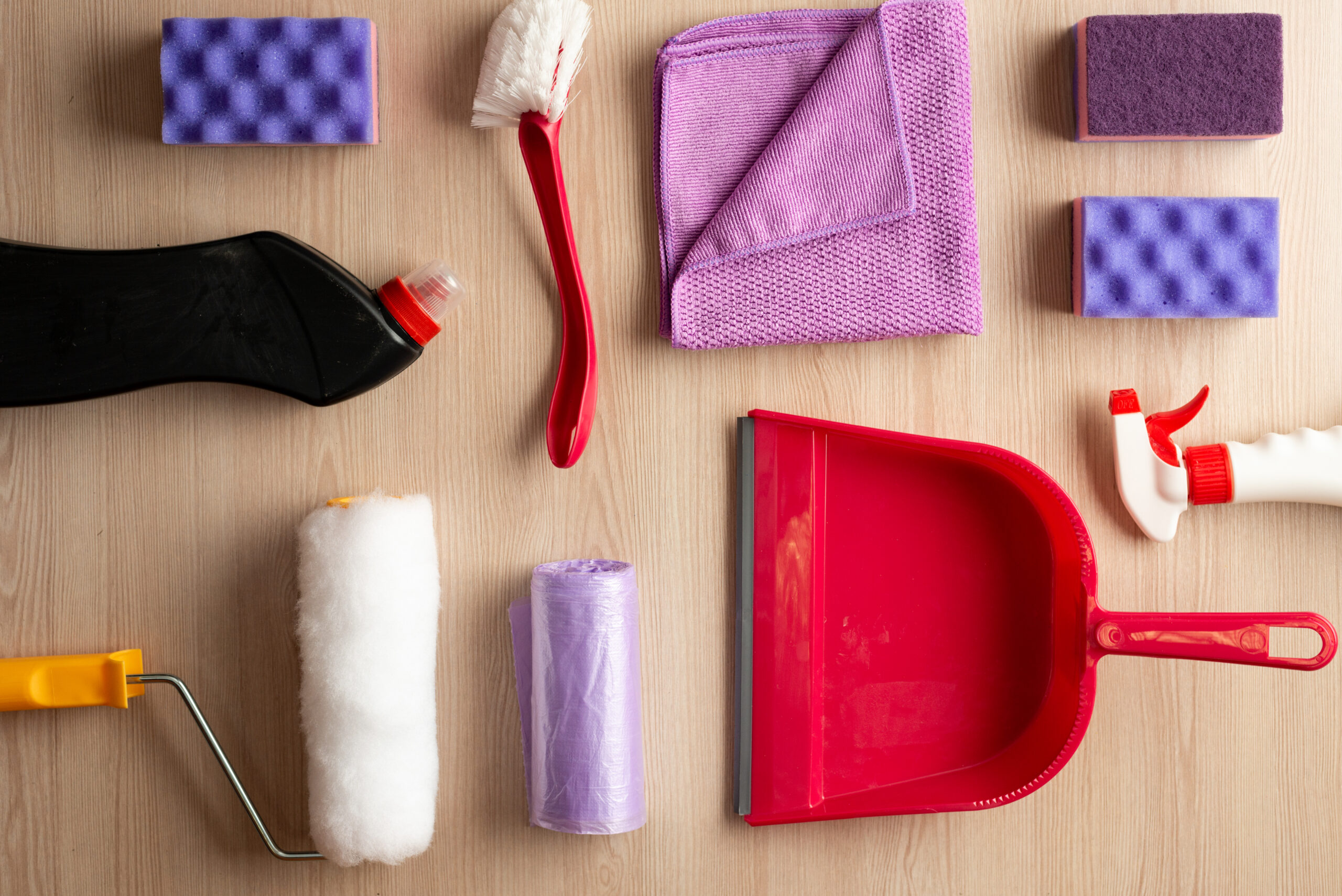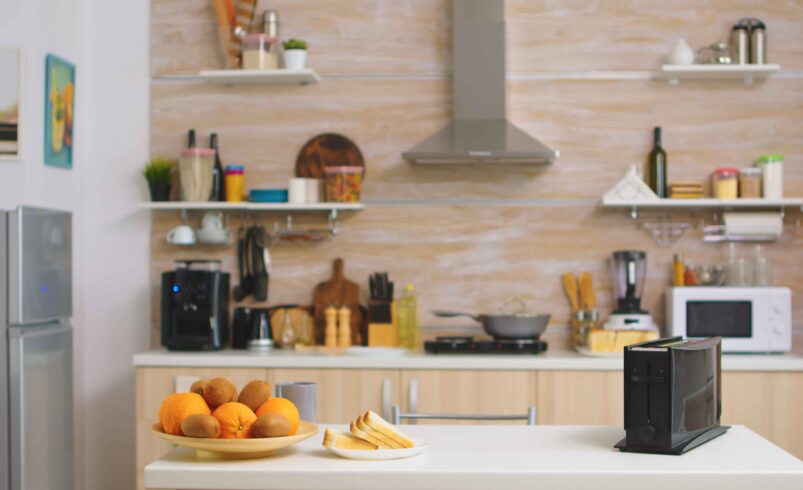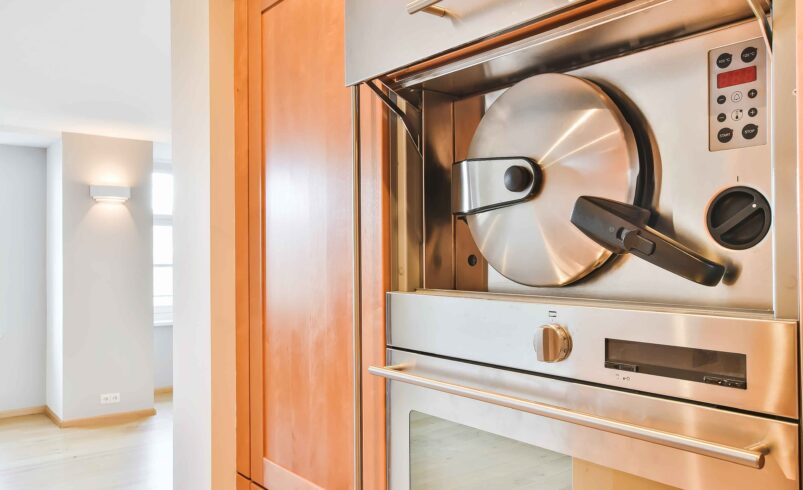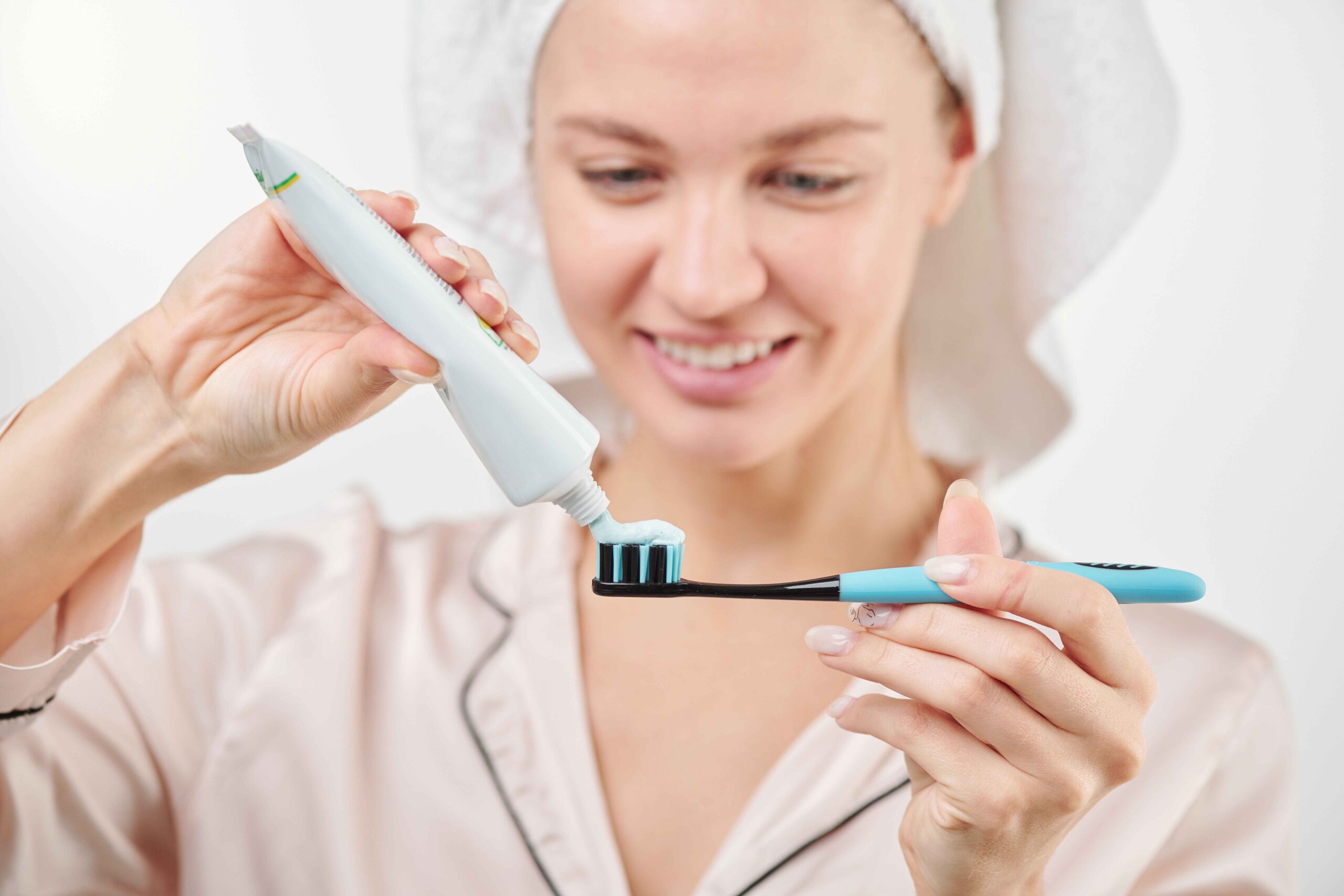✅ 2. Create Zones for Appliances (By Type of Use and Frequency)
Zone-based storage is a great concept for organizing your things – it clusters like-like things together and connects them to a specific space, making it easier to find them and return them.
🧭 Examples:
Daily Usage Zone: coffee maker, toaster, blender (on a counter or open shelf)
Meal Prep Zone: food processor, stand mixer, hand blender (positioned near the pantry or prep space)
Cooking Zone: air fryer, rice cooker, instant pot (located in cabinet near the stove)
💡 Testergate Pro Tip: Store appliances where you output and you can eliminate effort and mess.
✅ 3. Make Unique Use of Your Vertical Space
Your kitchen is not just unique by width, it is also unique by the height in the room.
📦 Storage Opportunities:
🎁 Bonus:
Store appliances attachments in a clear container or zip bag and label them!
Great way to avoid searching for a lost blade!
✅ 4. Properly Wrap & Protect Cords
If they are dangling or tangled, cords can break plug ends or bend prongs, plus you can potentially create a fire hazard.
🔧 How:
Use twist ties or Velcro wraps.
When storing each appliance, wrap the cord back separately and tuck it behind or under that appliance.
Be sure to not wrap the cord up too tightly, or you could break the internal wire.
💡 Testergate Note: Never store appliances with the cord hanging outside the shelf or drawer, as this is a tripping hazard and a risk of damage.
✅ 5. Do Not Stack Heavy Appliances (Unless Built for Stacking)
Your appliances may appear stackable, but most heavy-duty appliances are not constructed to carry weight on top of them.
🚫 Why Avoid:
Potential to crack housing or lid.
Traps heat and puts unnecessary strain on the motor.
Reduces life of appliance.
✅ Better Option:
Use appliance risers or shelves to keep appliances separated vertically without physical contact.
🔍 Testergate Tip: If you do stack appliances, put the lighter or less used appliance on top.
✅ 6. Allow for Breathing Space—Especially for Motorized Devices
If you constantly store appliances in close, unventilated places, you may be slowly killing them.
🔥 Why:
Traps left over heat and moisture
Increases likelihood for mold, rust, or motor damage
Prevents adequate cooling from taking place after use
✅ What to Do:
💡 Testergate Advice: Once you’ve finished using any heated appliance, place it in an open area and let rest for 15–30 minutes prior to storing.
✅ 7. Wipe Before You Pack—Every Time
Even if it’s “just a crumb.” Food residue invites pests and encourages corrosion.
🧽 Must-Wipe Appliances:
Toaster
Blender
Coffee maker
Air fryer
Food processor
✅ Best Practice:
💡 Testergate Tip: A 30-second wipe today can save you a deep clean (or a repair bill) tomorrow.
✅ 8. Use Spaces that Aren’t Utilized
Many kitchens have untapped areas—look up and down.
📦 Creative Areas:
Under-sink cabinet (for small appliances, dry items)
Above refrigerator cabinets (for seasonal or seldomly used items)
Rolling carts or trolleys (where you can store a daily use appliance to make it mobile)
💡 Testergate Suggestion: Give every appliance a home—even if it’s unusual.
✅ 9. Store Accessories & Manuals Together
There’s nothing worse than not knowing where the accessory or manual for your appliance has gone when you need it!
🔧 Fix It:
Use zippered bags, or boxes that you can label, to store accessories beside their appliance
Keep manuals in a file close by or simply save a digital version on your phone
💡 Testergate Tip: This practice saves time, helps prevent you from misplacing an accessory, and makes troubleshooting or ordering a replacement part easier.
✅ 10. Use and Store by the Season Rotate
Some appliances are seasonal appliances—and there’s nothing wrong with that!
🍨 Some Examples Include:
Summer: ice cream maker, smoothie blender, portable fan
Winter: soup maker, slow cooker, electric kettle
✅ Smart Move:
💡 Testergate Thought: Rotating appliances for seasonal storage helps to keep your daily-use space less cluttered, and will feel useful again!
🧠 Helpful Recommendations from Testergate
When discussing appliance storage, identifying how storing an appliance may not only preserve space, but preserve investments, efficiency, and potentially make your cooking experience more enjoyable is incredibly important. Regardless if you use your blender daily or your rice cooker a few times a week, how you deal with your appliance storage and where you store them ultimately affects their performance and longevity!
At Testergate, we think smart storage today is just as important as smart appliances.
You don’t need a bigger kitchen, especially since implementing better habits is simple.
By implementing each of the suggestions above, you are capable of:
Keeping your appliances safe
Clearing your sink and countertops
Allowing for your kitchen to be a pleasure to use, each moment you cook.











